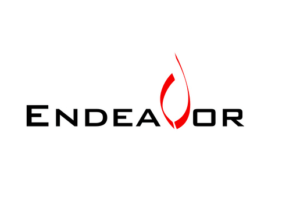Ghana government signs $953m 20-year PPA with Early Power consortium, but…
 The Ghana government has gone ahead to sign a 20-year power purchase agreement (PPA) with the Early Power consortium, but some issues still remain unclear.
The Ghana government has gone ahead to sign a 20-year power purchase agreement (PPA) with the Early Power consortium, but some issues still remain unclear.
One of the issues is how the cost of the project was revised upwards.
The consortium comprising power producer Endeavor Energy, GE and a Ghanaian company, Sage Petroleum, announced Tuesday October 25, 2016 that after receiving Parliamentary approval for the deal, it has signed a 20-year power purchase agreement with the Electricity Company of Ghana (ECG) for the 400 megawatt (MW) Bridge Power project, according to a press release issued on behalf of the consortium by the PR company Pierpont Communications.
The formation of the lead company, Endeavor Energy was announced in June 2013, by Denham Capital, an energy-focused global private equity firm. Denham seeded the enterprise with an initial commitment of $100 million from its $3 billion Fund VI raised in 2012.
According to Early Power, the deal includes a five-year extension option. The consortium also indicates that it expects to reach financial close on Bridge Power in December 2016, adding, it will develop the project in two phases – 194 MW in Phase 1 and 206 MW in Phase 2 in the port city of Tema, about 26 kilometers east of Accra.
“Bridge Power is expected to start producing 144 MW of first power within the first six months to help the country meet near-term power shortages,” the consortium says, but doesn’t state the cost of the project.
The cost of the project however, has been put at $953.4 million, by the African Centre for Energy Policy (ACEP).
According to ACEP the $953.4 million cost as reported by the government was due to an upgrading of the simple cycle plant to a combined cycle plant and the addition of LPG infrastructure. The original cost of the project was $647.7 million, the organization said, indicating that it wasn’t able to estimate engineering, procurement and construction (EPC) cost of the revised project design because the government has not provided a break down of the original project cost of $647.7 million.
ACEP argues further that, estimating non-EPC cost at 30 per cent, which is industry standards, of the original project cost, the EPC cost could have been put at $453 million.
“Therefore, with a revised EPC cost of $636.8 million, the additional EPC cost of the steam installation could be put in a range of $150 – $190 million, which is on the high side for an additional 50MW. The cost of TICO expansion, estimated at $330 million for 110MW steam installation including offshore work for Sea Water cooling system, could be an important guide considering that the two designs by GE and Siemens are the leading designs in the world, although they cannot be a one-to-one comparison due to design differences,” it said.
Generally, ACEP believes that the project holds many advantages for Ghana and for the energy sector in particular, on the condition that, only if, it is implemented within the time frame negotiated in the PPA and the challenges of the cost and tariffs were addressed.
The tariffs approved for the project, ACEP notes, consist of capacity charge and energy charge and any adjustments arising from increased or decreased costs.
The total capacity charge, it points out, consists of capital recovery charge of 4.07 cents/kwh and a power fixed O&M charge of 0.509 cents/kwh.
“This becomes 4.579 cents/kwh for total capacity charge. We think that the capital recovery charge could be lower, however marginal. The entire original cost for the project at $647.7 million with a capital recovery charge of 4.23 cents/kwh had a recovery period of 20 years. These remain important and must be addressed by government even after Parliamentary approval,” it said.
By Emmanuel K. Dogbevi
Copyright © 2016 by Creative Imaginations Publicity
All rights reserved. This news item or any portion thereof may not be reproduced or used in any manner whatsoever without the express written permission of the publisher except for the use of brief quotations in reviews.
